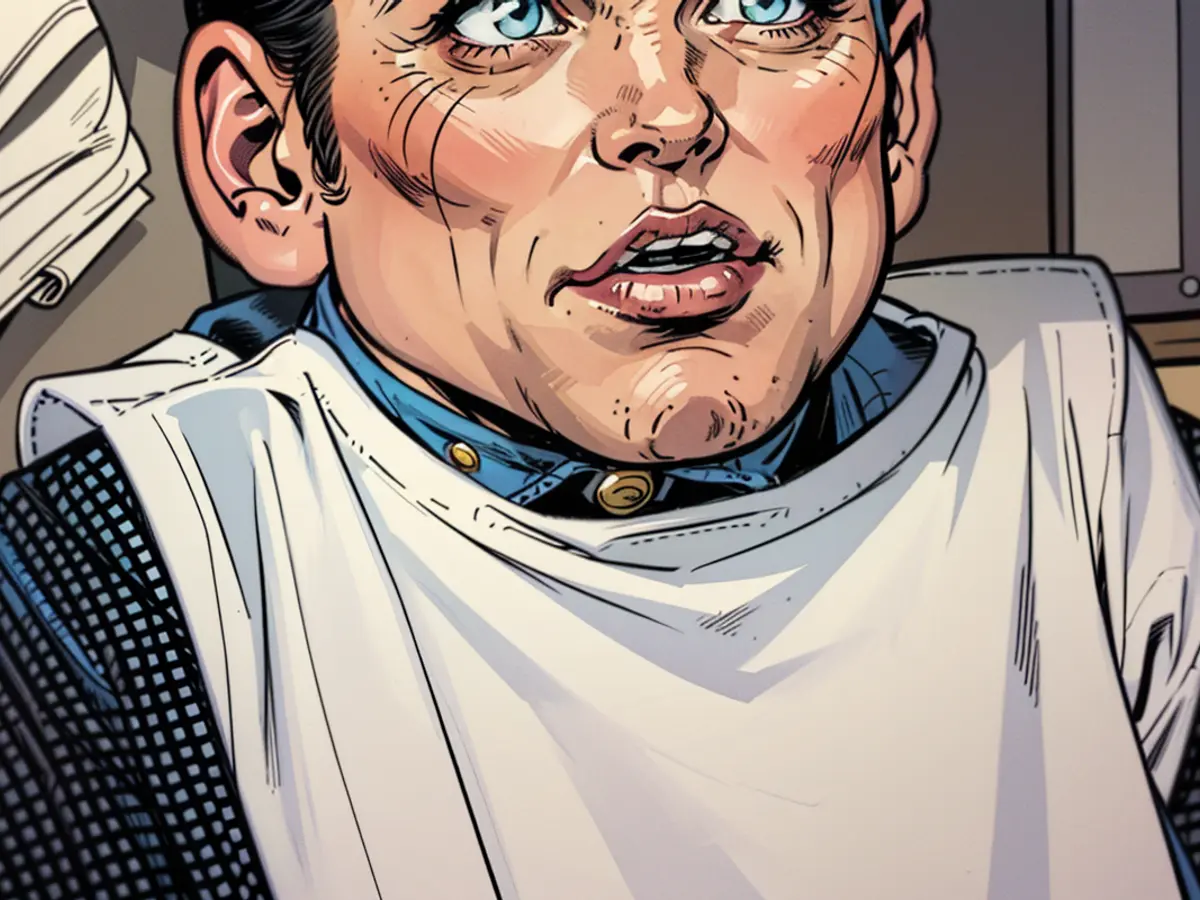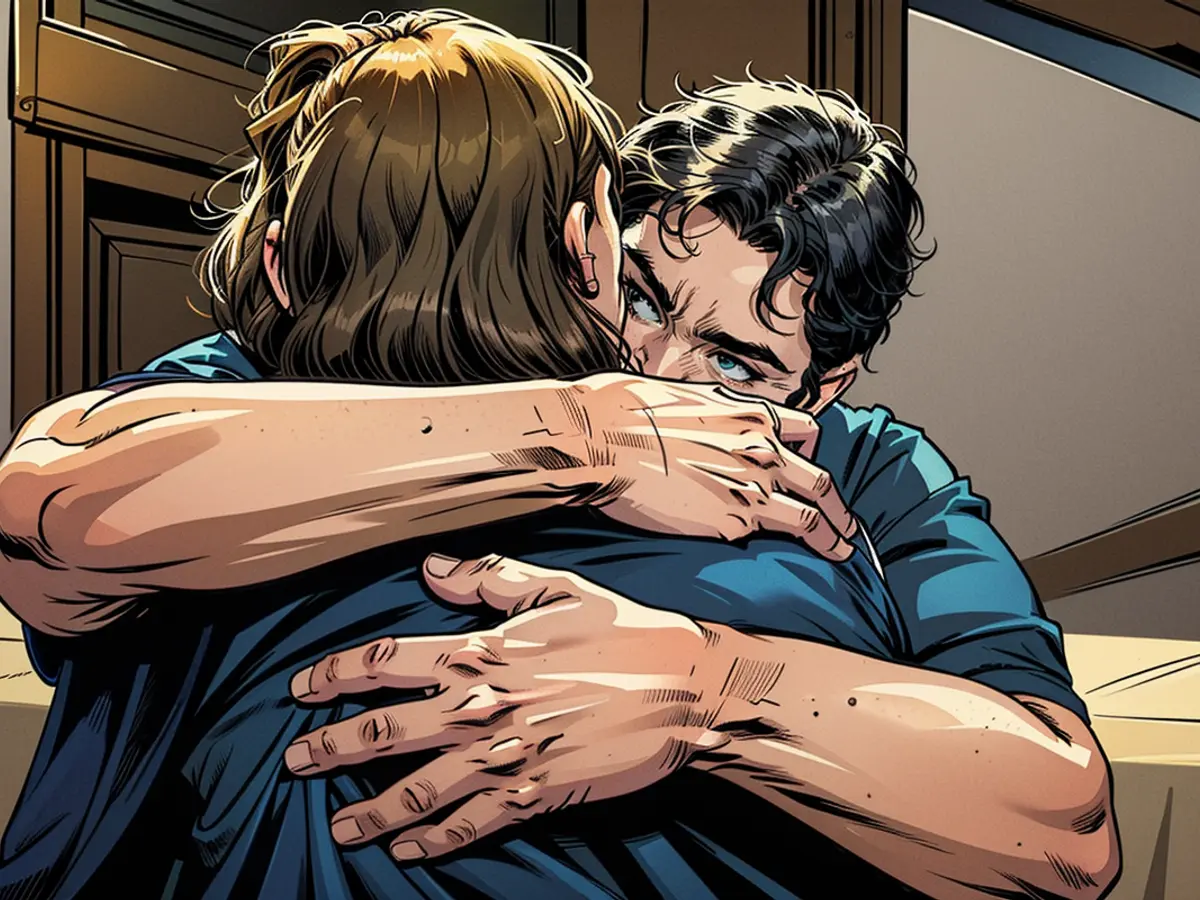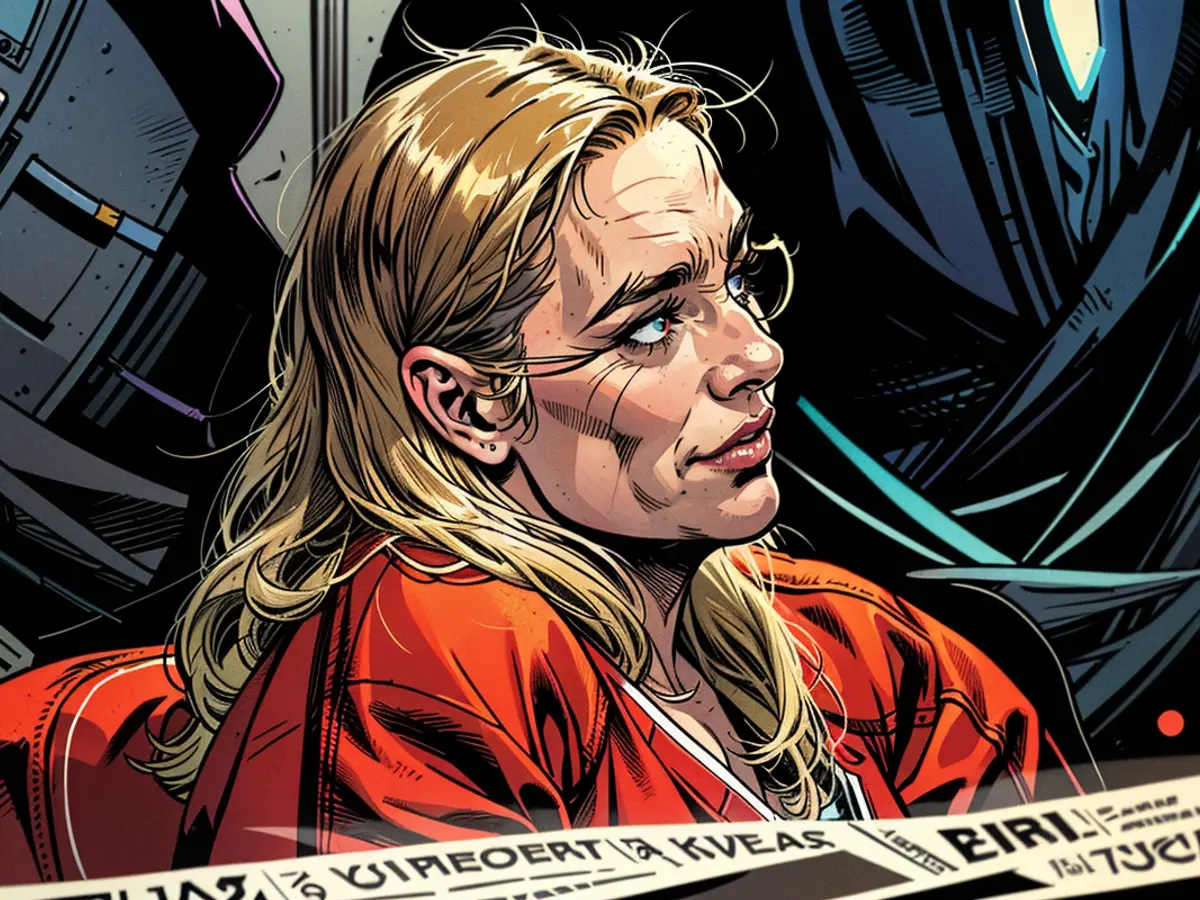Following a infant head injury, Benjamin Dowling tragically passed away after over three decades. His previous caretaker recently admitted guilt in connection with his demise.
After continuously denying harming Benjamin Dowling, 62-year-old Terry McKirchy admitted to injuring him and confessed to manslaughter in a Broward County courtroom on Wednesday. A judge penalized her with three years in prison, followed by a ten-year probation period for felons.
Doctors reported that at the age of five months, Dowling suffered severe brain damage due to being violently shaken, severing his nerves.
In 1985, McKirchy pleaded not guilty to attempted first-degree murder and aggravated battery on a child. She was sentenced to weekends in jail for 60 days and a three-year probation period.
Dowling lived his entire life with severe disabilities until his unfortunate demise at the age of 35 on September 16, 2019.
In 2021, McKirchy was charged with first-degree murder by prosecutors, citing a medical examiner’s report, which stated that Dowling's death was a direct consequence of the injuries he suffered in 1984. Facing life in prison, she pleaded guilty to the lesser charge of manslaughter on Wednesday, reaching a plea deal with prosecutors.
A family seeking retribution
Everyone who knew Benjamin Dowling was better off having encountered him, Rae Dowling told the court on Wednesday.
She described the support and unity her son's family and community displayed in providing him with an enriching life despite the numerous opportunities he missed.
“Benjamin never attended a traditional school, missed out on high school events like homecoming dances and graduations. He never got to drive, have a girlfriend or engage in activities with his siblings,” Dowling mentioned. “Benjamin was never able to express his love for his parents or family members.”
“Benjamin suffered profound disabilities every second of his 35-year life, due to Terry McKirchy's actions towards him while under her care on July 3, 1984,” she continued.

The Dowlings met McKirchy, a 22-year-old woman with childcare experience, through a family relative of Benjamin's father, Dowling explained. They were unaware of her criminal history, so they entrusted her with Benjamin's care, she added.
Dowling read an entry from her journal, which she wrote 40 years ago, detailing the state of her baby boy when she retrieved him from McKirchy's house on that fateful Tuesday in July.
“He was seated in his car seat, paler than a ghost, with clenched fists, moaning and staring blankly into space. He didn’t recognize me, and I left as soon as I could,” Dowling read.
She took Benjamin to the hospital, where she learned about his critical condition. The doctors, suspecting abuse, contacted the police, she said.
“For all intents and purposes, Benjamin's brief, 173-day, five-month, and three-week existence was over,” she admitted.
As part of the plea deal, McKirchy wrote a letter of apology to Benjamin's parents. Her attorney read this letter out in court on Wednesday.
“I vividly remember being extremely overwhelmed and burnt out while looking after all the children in my home, and it was in this state, out of impulse and anger, that I struck Benjamin while he and other children were crying,” the letter read.
“Your lives, Benjamin's life, and his well-being were all affected by my actions. I am genuinely sorry for that,” the letter concluded.
CNN reached out to McKirchy's lawyer for a comment, but they declined to do so.

Shaken Baby Syndrome
Medical professionals refer to a type of abusive head trauma known as Shaken Baby Syndrome when referring to injuries resulting from violently shaking or shaking and impacting a baby or small child's head, which can ultimately lead to death or irreversible neurological damage, according to the National Center on Shaken Baby Syndrome.
Approximately 80% of victims suffer from lifelong disabilities, and 25% die from their injuries, the center reports.
Babies under a year old are most susceptible to abusive head trauma, the US Centers for Disease Control and Prevention states. Almost all victims experience long-term health consequences, which include vision problems, hearing loss, developmental delays, and physical disabilities, the agency says.
Experts say that this form of abuse commonly occurs when babies cry persistently – as infants are prone to – and a caregiver becomes frustrated or enraged and shakes them.
In recent years, a growing trend has emerged that supports those accused of causing abusive head trauma, with witnesses testifying in court that the evidence supporting Shaken Baby Syndrome has been refuted.
Some medical authorities have changed their terminology to “abusive head trauma” instead of Shaken Baby Syndrome to acknowledge that abuse can result from actions other than shaking. Although experts insist that the term change has been misconstrued by specific legal and medical circles as doubt over the diagnosis, research published by the American Academy of Pediatrics proves that this type of trauma is genuine and preventable.
The academy recommends pediatricians keep an eye out for the potential signs and symptoms of abusive head trauma and report suspected cases to the appropriate authorities.
CNN’s Sandee LaMotte contributed to this report.

The Dowlings expressed their gratitude towards Benjamin's community for supporting him and providing him with a fulfilling life despite his circumstances, despite his inability to attend regular school, attend homecoming dances, graduate, drive, or have a girlfriend due to his disabilities.
Despite her past criminal history, the Dowlings trusted McKirchy with Benjamin's care, unaware of her ability to cause harm.








